Publications
-
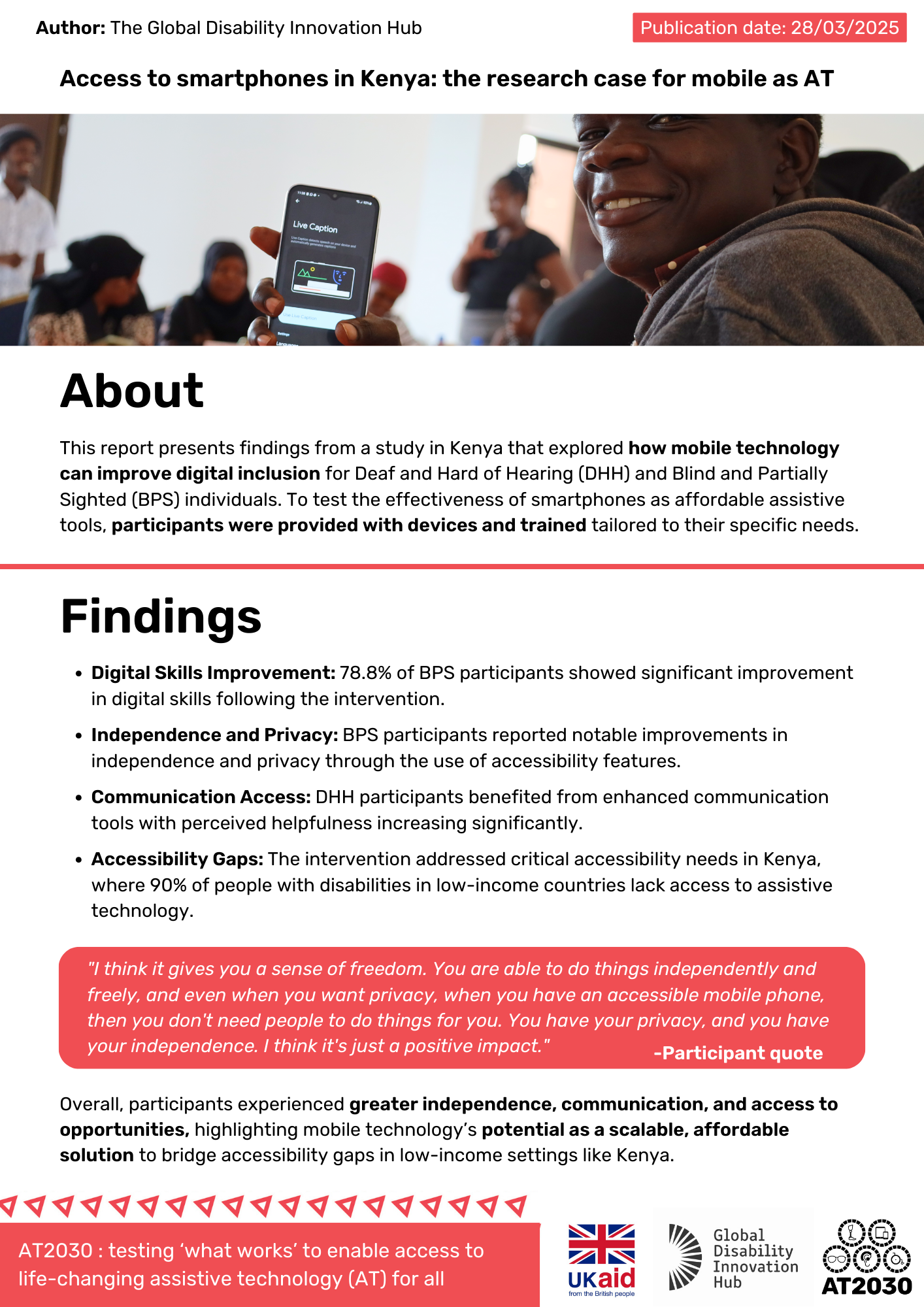
Access to smartphones in Kenya: the research case for mobile as AT - Research Summary
Global Disability Innovation HubMay 8, 2025Research SummariesThis report presents findings from a study in Kenya that explored how mobile technology can improve digital inclusion for Deaf and Hard of Hearing (DHH) and Blind and Partially Sighted (BPS) individuals. To test the effectiveness of smartphones as affordable assistive tools, participants were provided with devices and trained in ways tailored to their specific needs.
-
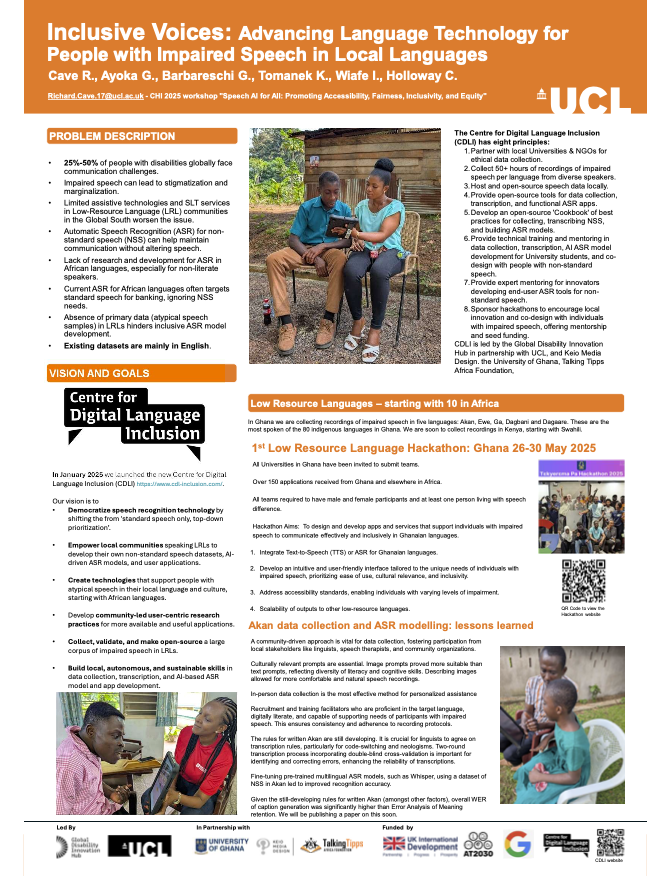
Inclusive Voices: Advancing Language Technology for People with Impaired Speech in Local Languages
Richard CaveMay 8, 2025Academic Research PublicationsIn April 2025, the CDLI (Centre for Digital Language exclusion) team attended CHI 2025 - the ACM (Association for Computing Machinery) conference on Human Factors in Computing Systems held in Yokohama, Japan. They took part in a workshop on the theme of "Speech AI for All: Promoting Accessibility, Fairness, Inclusivity, and Equity" and made a poster presentation on “Inclusive Voices: Advancing Language Technology for People with Impaired Speech in Local Languages”, which addressed the question of how to promote accessibility, fairness, inclusivity and equity through the use of language technology in local languages for people with impaired speech.
-
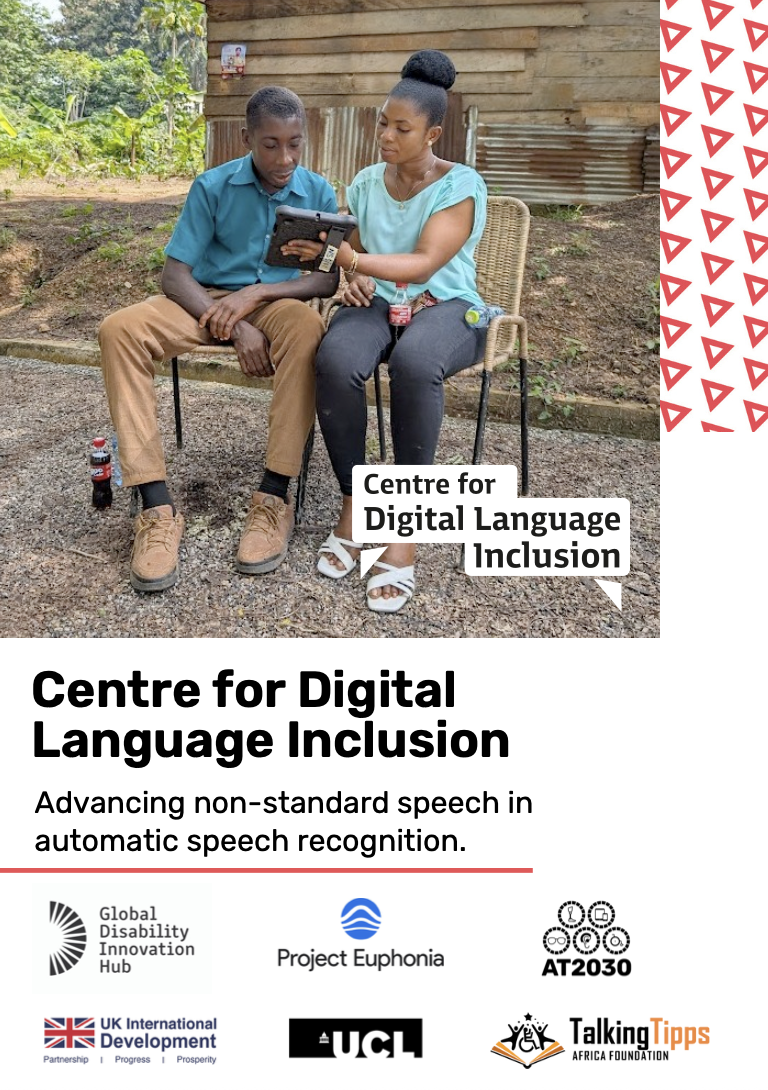
Advancing Speech Technology for All
Global Disability Innovation HubMay 1, 2025Case Studies and ReportsThe Centre for Digital Language Inclusion (CDLI) is charting a bold path forward for automatic speech recognition (ASR) in underrepresented communities. This report highlights the Centre's pioneering work in developing AI-driven solutions for people with non-standard speech, especially in low-resource African languages.
-
Bridging AI and Humanitarianism: An HCI-Informed Framework for Responsible AI Adoption
Dr Maria Kett, Catherine Holloway, Tigmanshu Bhatnagar, Maarya Omar, Davor Orlic, James SmithApril 25, 2025GlobalAcademic Research PublicationsAdvances in artificial intelligence (AI) hold transformative potential for humanitarian practice. Yet aligning this potential with the demands of humanitarian practice in dynamic and often resource-austere contexts remains a challenge. While research on Responsible AI provides high-level guidance, humanitarian practice demands nuanced approaches for which human-computer interaction (HCI) can provide a strong foundation. However, existing literature lacks a comprehensive examination of how HCI principles can inform responsible AI adoption in humanitarian practice.
-
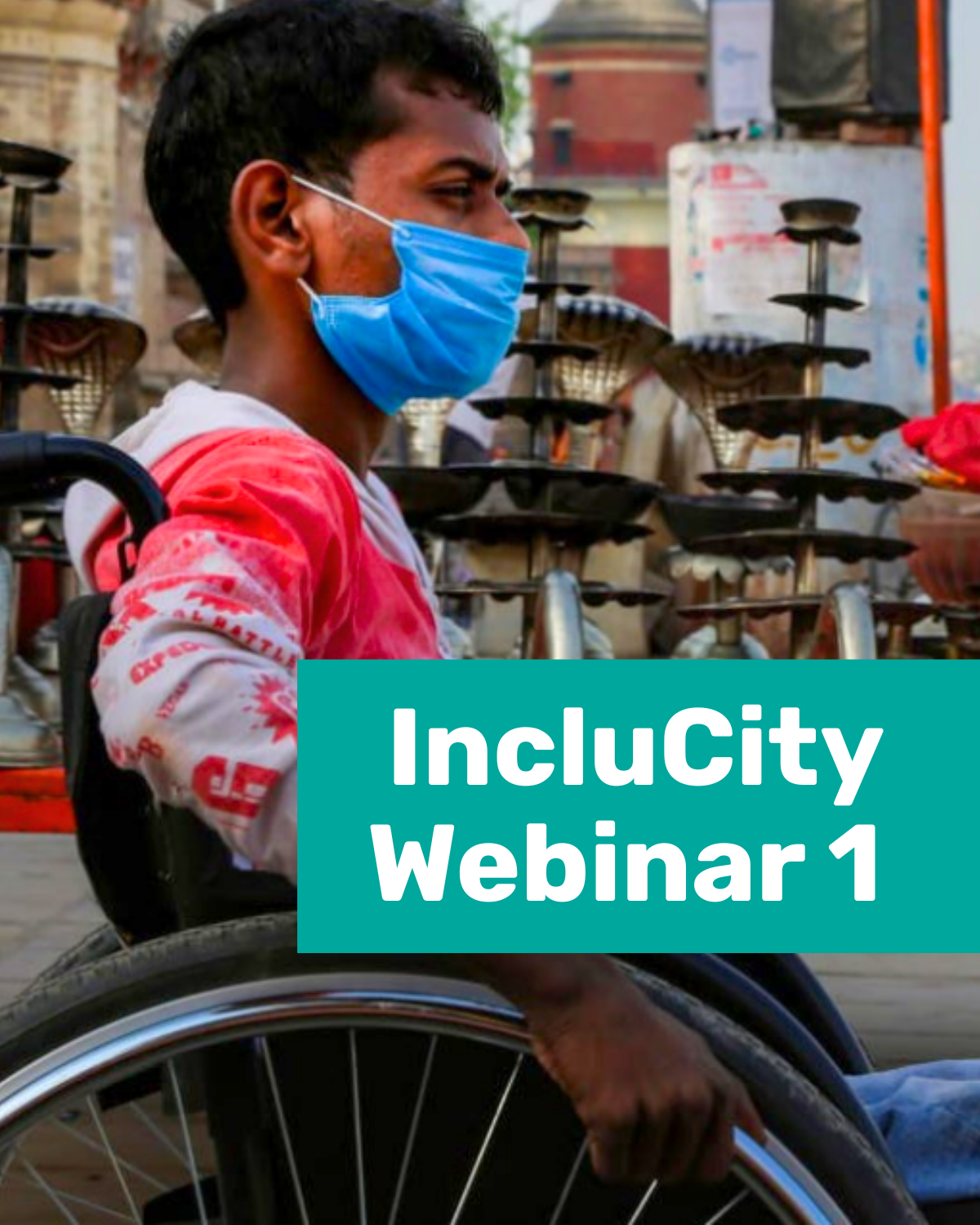
IncluCITY: From Global Insight to Local Action
Global Disability Innovation HubApril 23, 2025AT2030 ResourcesThe webinar focuses on the need for localising action and highlights voices of different stakeholders on crucial questions around building inclusive cities. Around the world, our cities are changing at an unprecedented pace by 2050, 70% of the global population is expected to live in urban areas (UN).
-
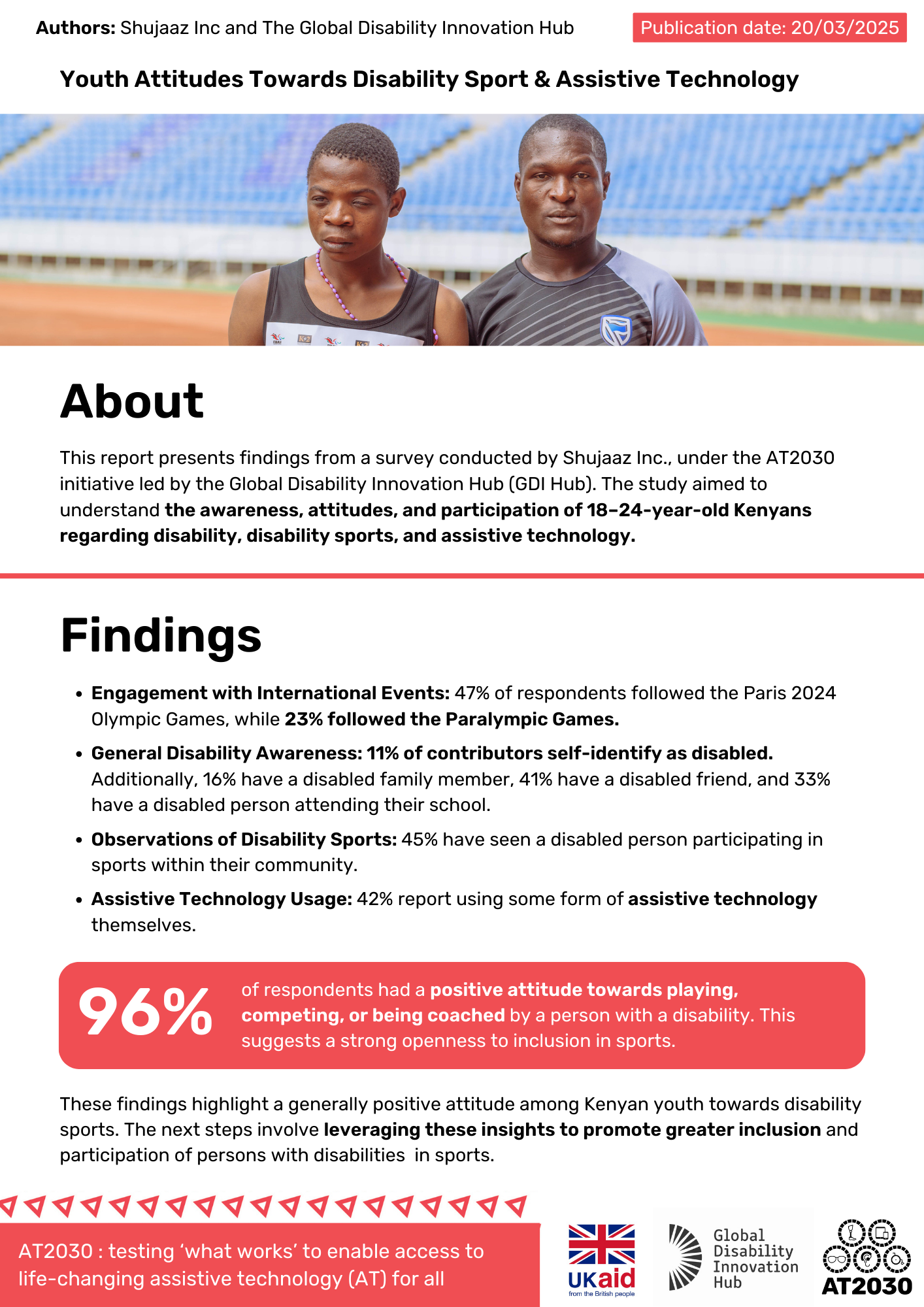
Youth Attitudes Towards Disability Sport & Assistive Technology: Research Summary
Shujaaz IncApril 3, 2025Research SummariesThis report presents findings from a survey conducted by Shujaaz Inc., under the AT2030 initiative led by the Global Disability Innovation Hub (GDI Hub). The study aimed to understand the awareness, attitudes, and participation of 18–24-year-old Kenyans regarding disability, disability sports, and assistive technology.
-
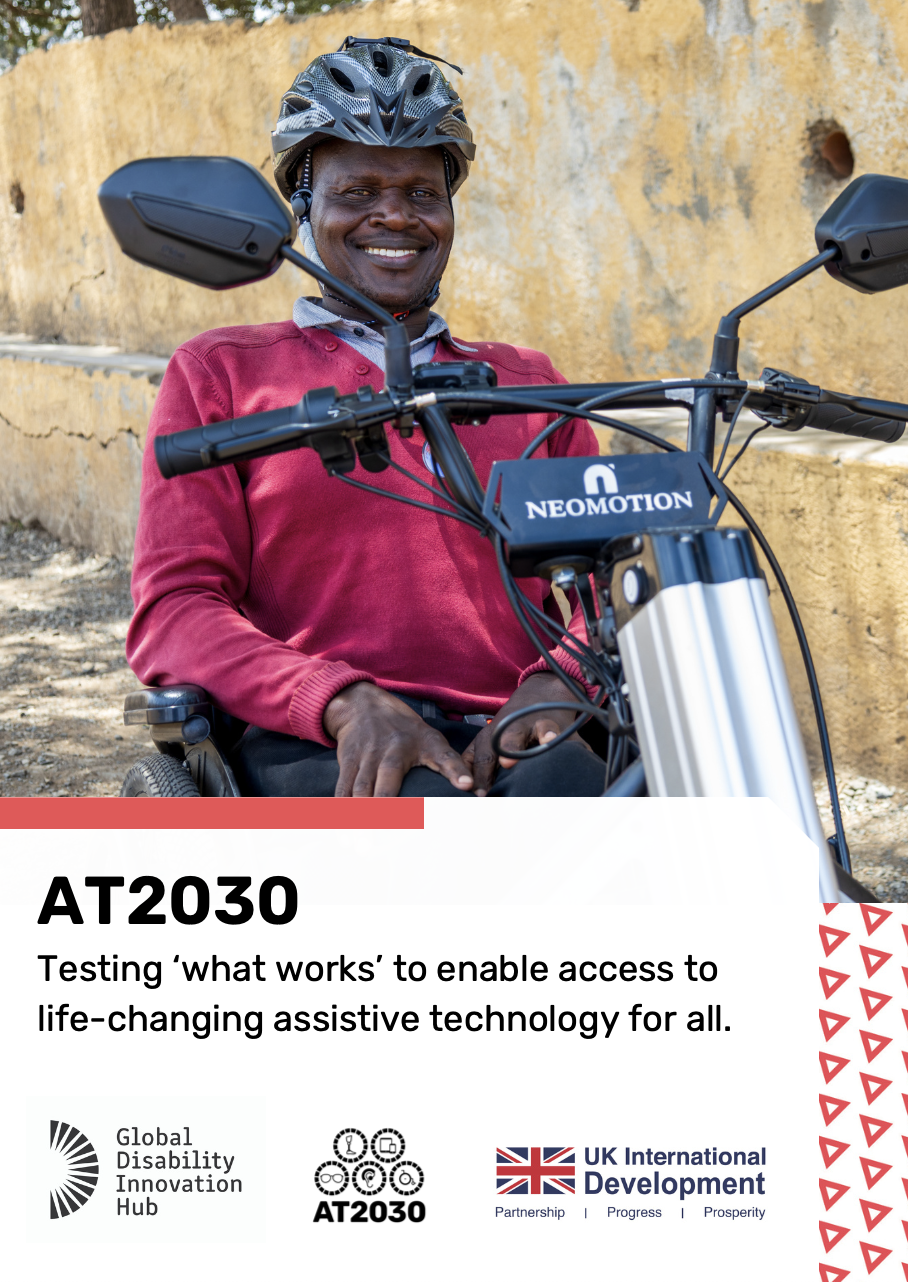
AT2030: Testing 'What Works' in Assistive Technology
Global Disability Innovation HubApril 2, 2025Case Studies and ReportsFirst showcased at the Global Disability Summit (GDS) 2025, the AT2030 Impact Brochure 2025 details the AT2030 programme's progress and achievements in expanding access to assistive technology (AT) globally, including information on the program's evolution, key outcomes, partnerships, and future directions.
-
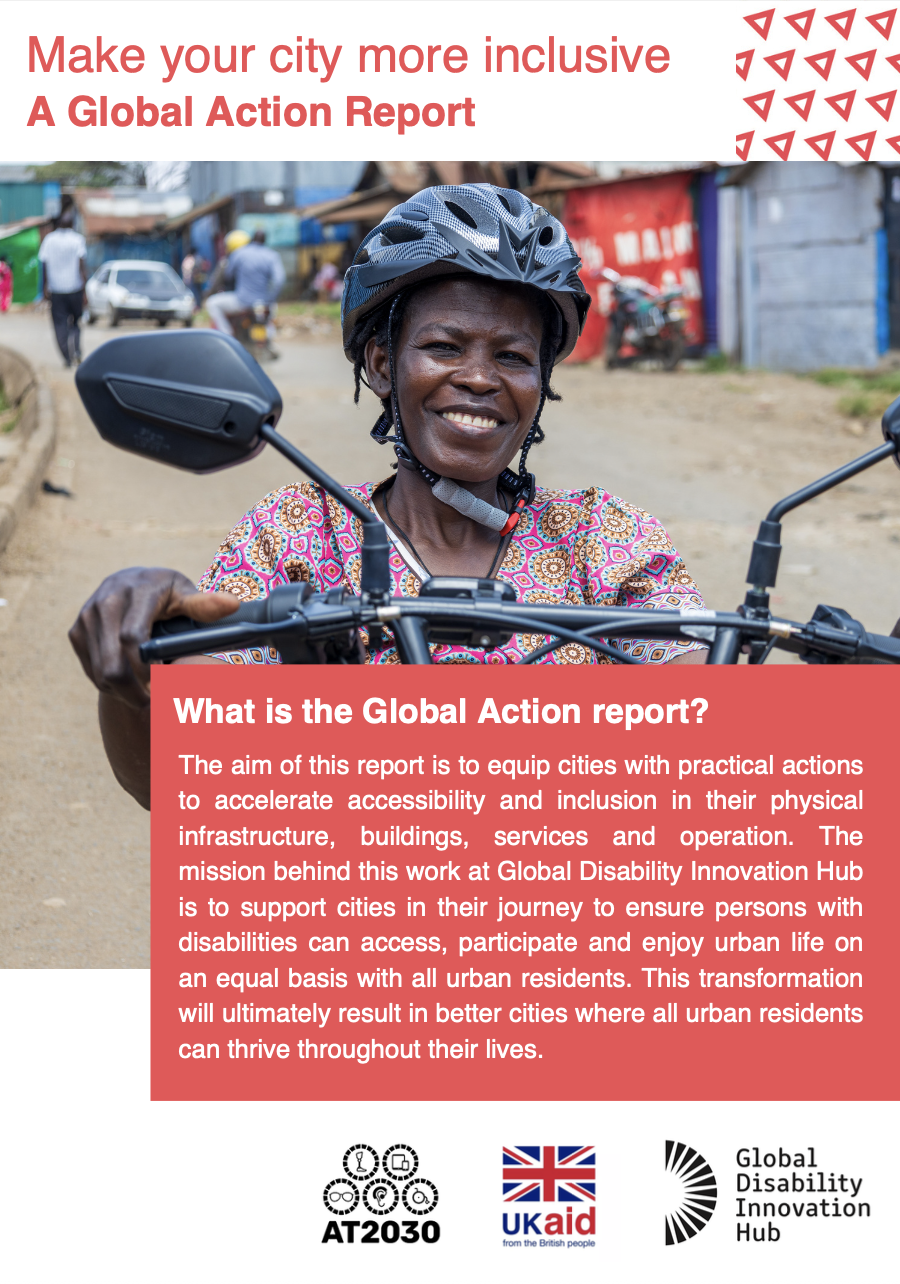
Make Your City More Inclusive: A Global Action Report
Global Disability Innovation HubApril 2, 2025Case Studies and ReportsFirst presented at the Global Disablity Summit, The "Make Your City More Inclusive: A Global Action" report offers cities practical actions to accelerate accessibility and inclusion in their infrastructure, buildings, services, and operations.
-
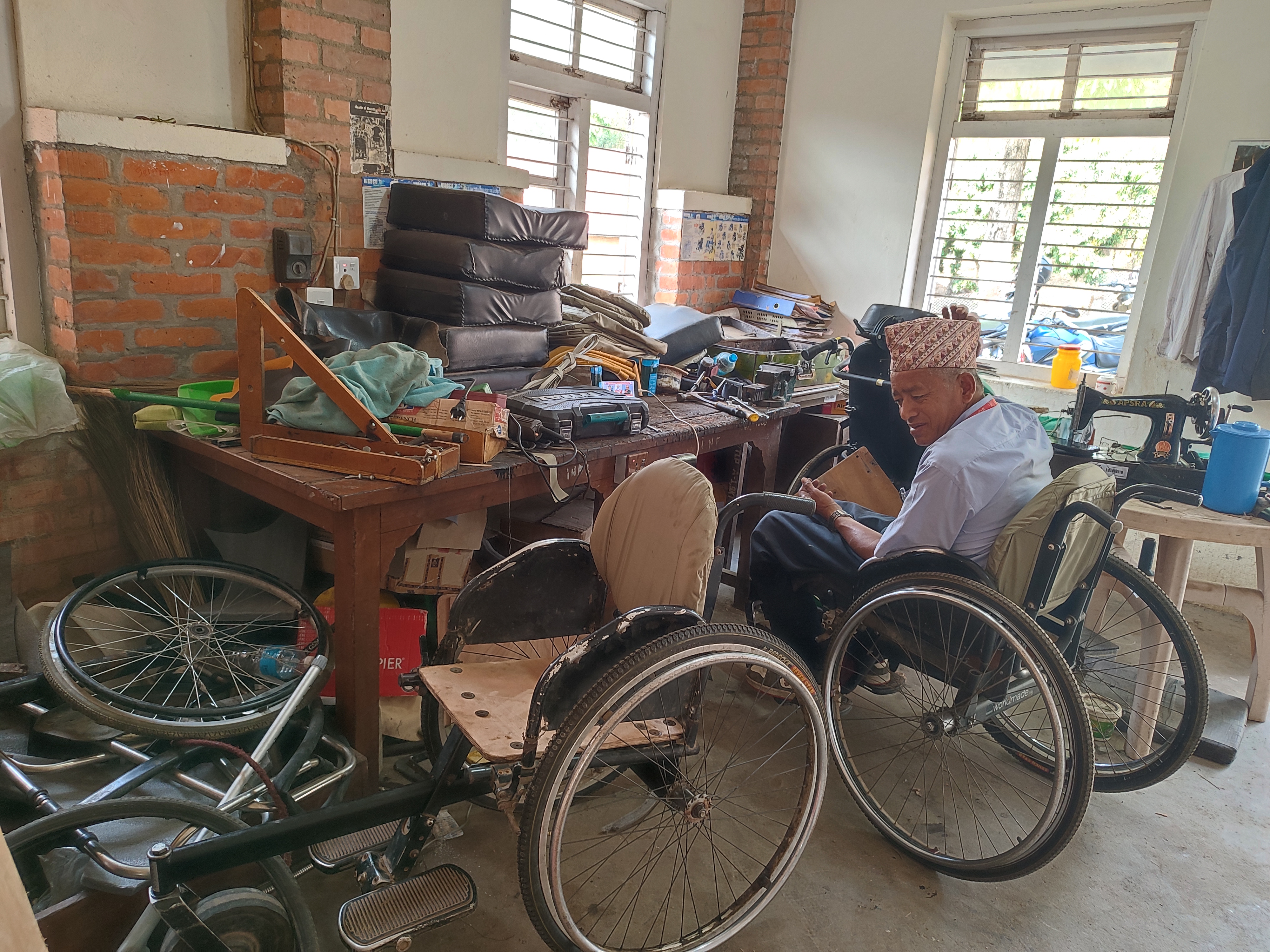
Nepal Wheelchair Provision Workshop Report
Global Disability Innovation Hub, University of Limerick, Kathmandu UniversityMarch 31, 2025Academic Research PublicationsDespite supportive policies, wheelchair provision in Nepal is informal and unsustainable. Through interviews and workshops across four provinces, key challenges and solutions were identified, highlighting the urgent need for systemic reform to ensure equitable, sustainable wheelchair services.
-
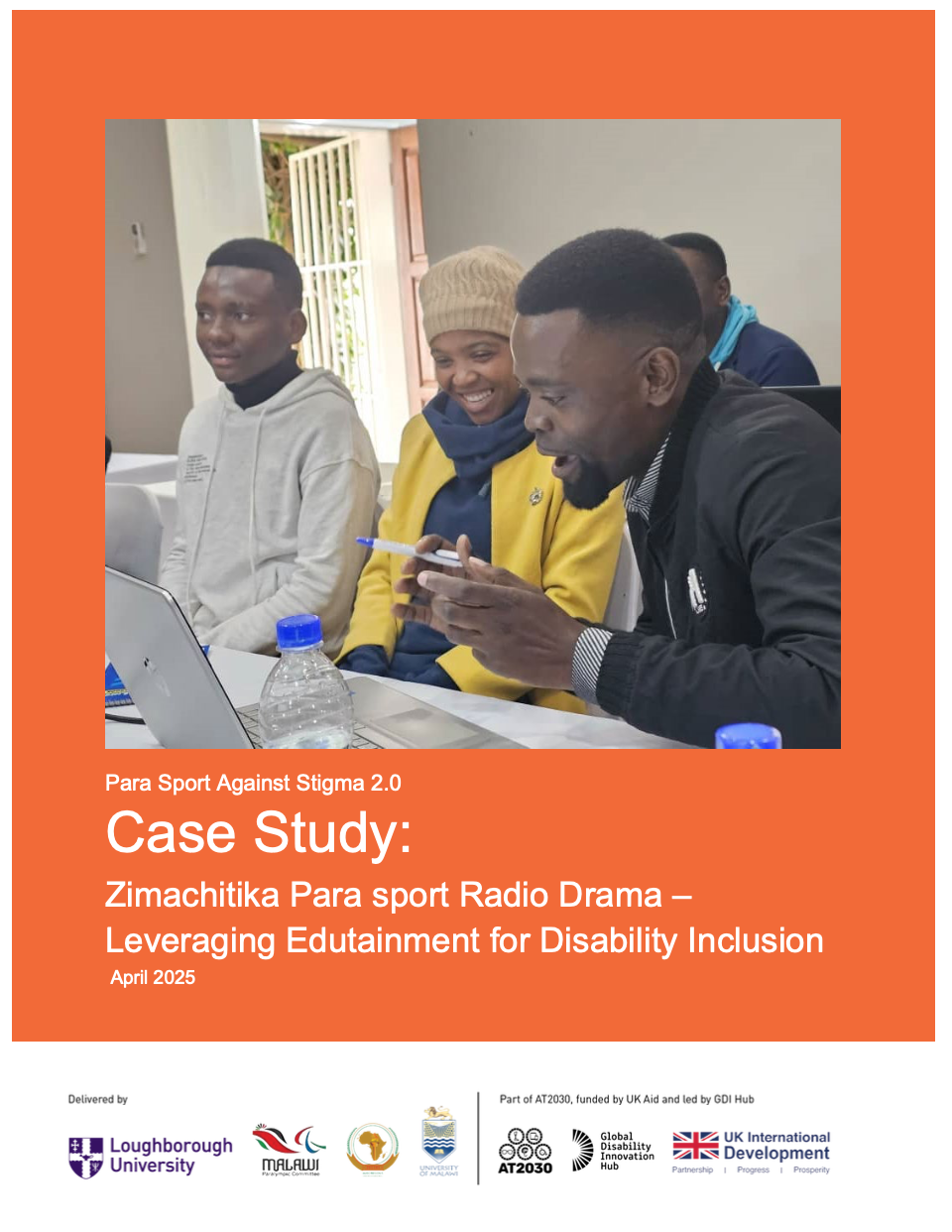
Zimachitika Para sport Radio Drama – Leveraging Edutainment for Disability Inclusion
Loughborough University, University of Malawi, Malawi Paralympic CommitteeMarch 31, 2025Case Studies and ReportsAhead of the Paris 2024 Paralympic Games, the Malawi Paralympic Committee and the University of Malawi partnered with Story Workshop Educational Trust (SWET) to produce six special episodes of the popular Malawian radio drama Zimachitika (These Things Happen). Using the "Making Noise" methodology, this initiative aimed to build interest in Para sport and challenge stigma around disability through the power of storytelling.
-
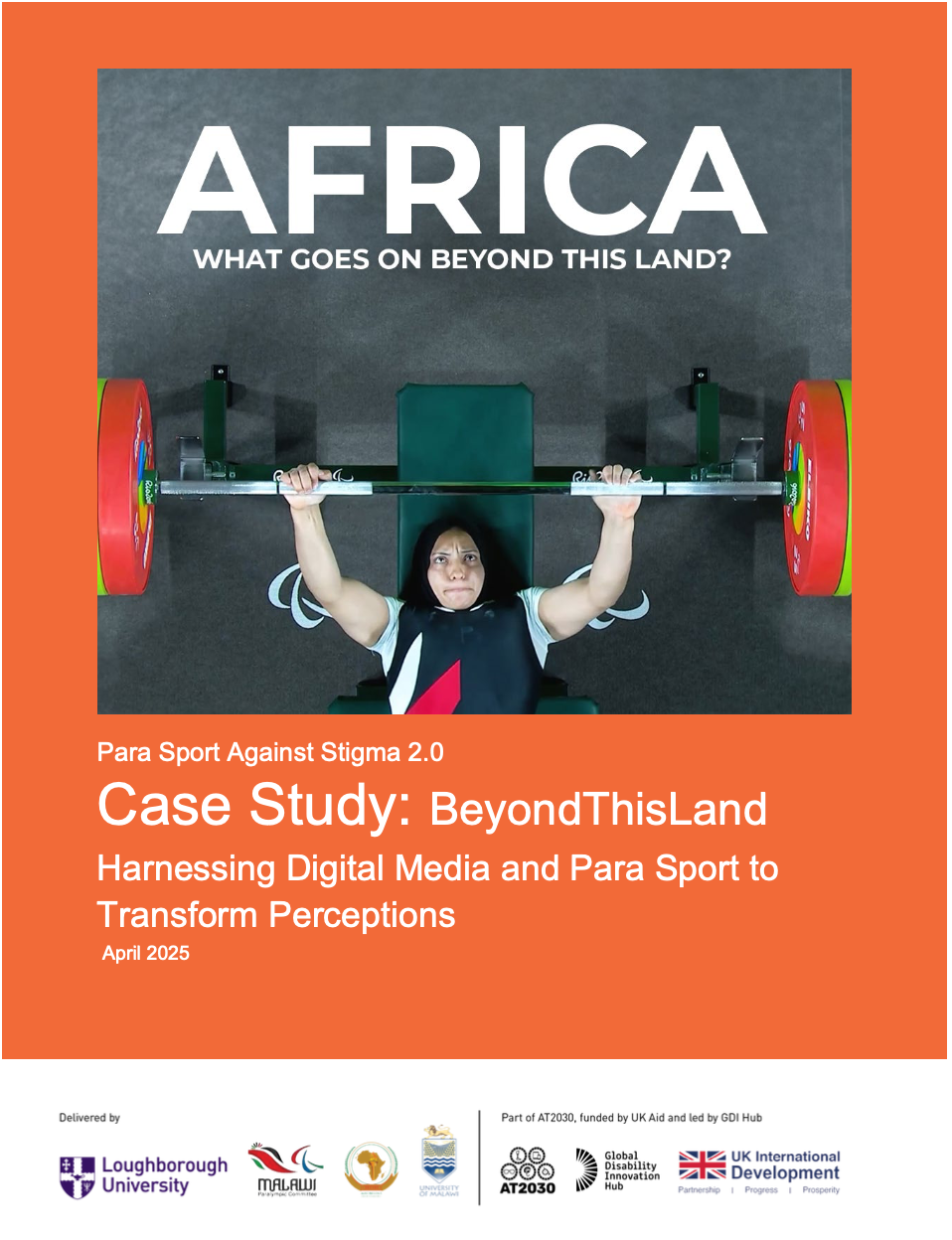
BeyondThisLand Case Study
Global Disability Innovation Hub, Loughborough University, University of Malawi, Malawi Paralympic Committee, The African Union Sports Council (AUSC) Region 5March 31, 2025Case Studies and ReportsThis case study highlights the #BeyondThisLand campaign used to reimagine the narrative of disability sports in Africa, presenting para athletes as talented, motivated, and strong competitors while engaging audiences through relatable digital storytelling.
-
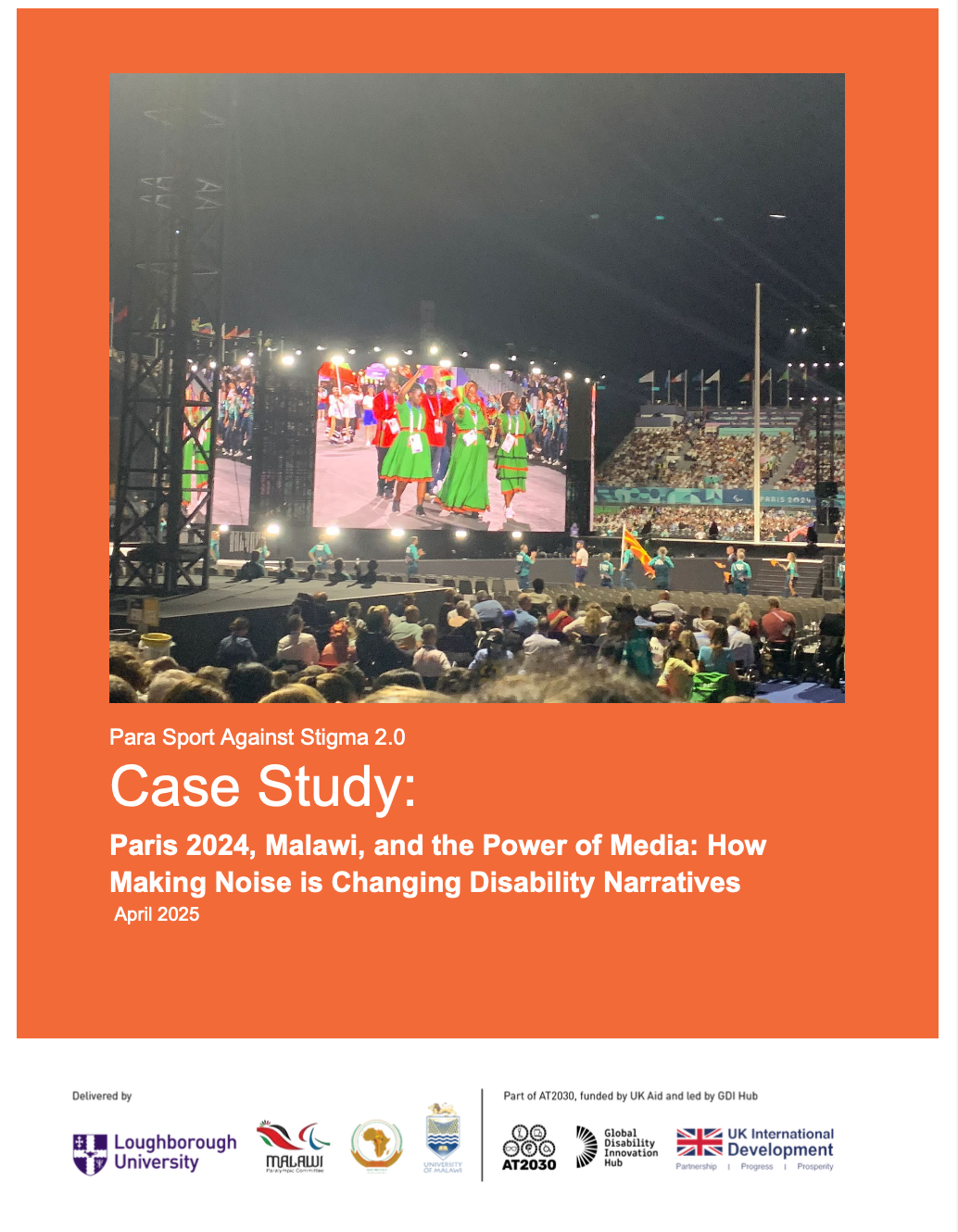
Paris 2024, Malawi, and the Power of Media: How Making Noise is Changing Disability Narratives
Loughborough University, University of Malawi, Malawi Paralympic CommitteeMarch 31, 2025Case Studies and ReportsThe Malawi Paralympic Committee, and University of Malawi, worked closely with a range of national stakeholders to develop activities and media content aimed at challenging and shifting stigma associated with disability through Para sport. This case study provides insight on the "Making Noise" methodology that was implemented before, during, and after the Paris 2024 Paralympic Games.
-
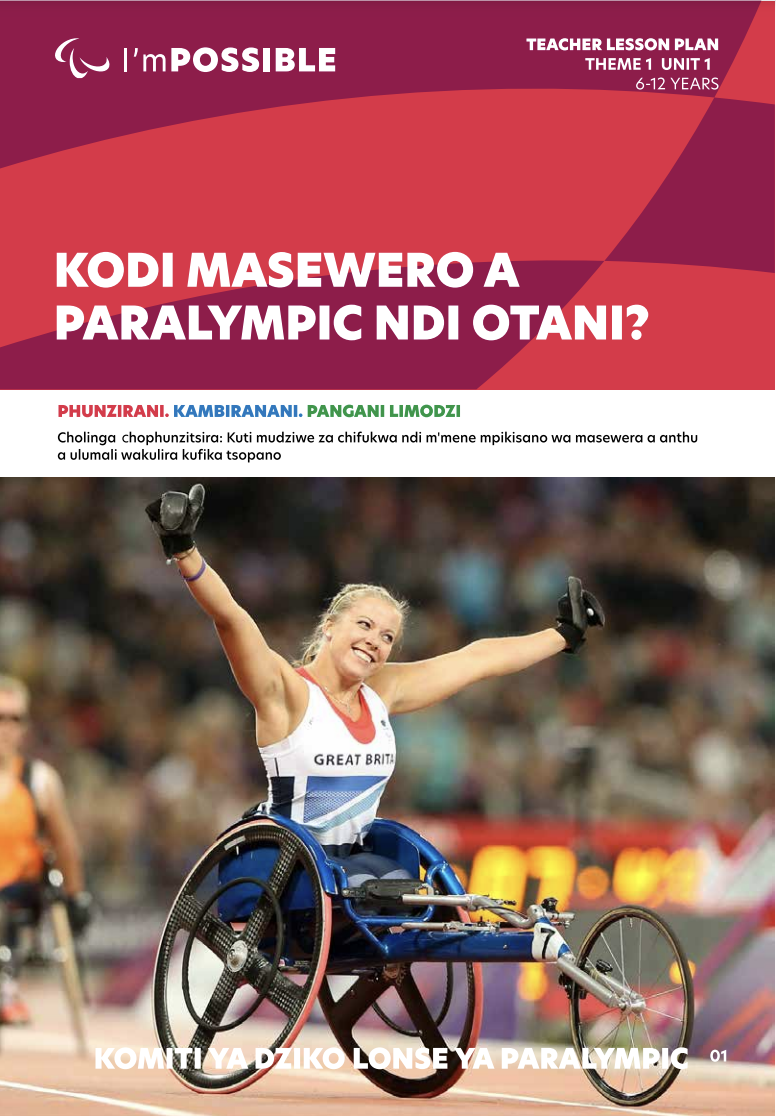
Localising I'mPossible Toolkit Malawi
The International Paralympic Committee (IPC)March 30, 2025AT2030 ResourcesThis toolkit is for professionals in the Para-Sports sector to develop their I'mPossible skillset and address stigma, This tool is available in Chichewa.
-
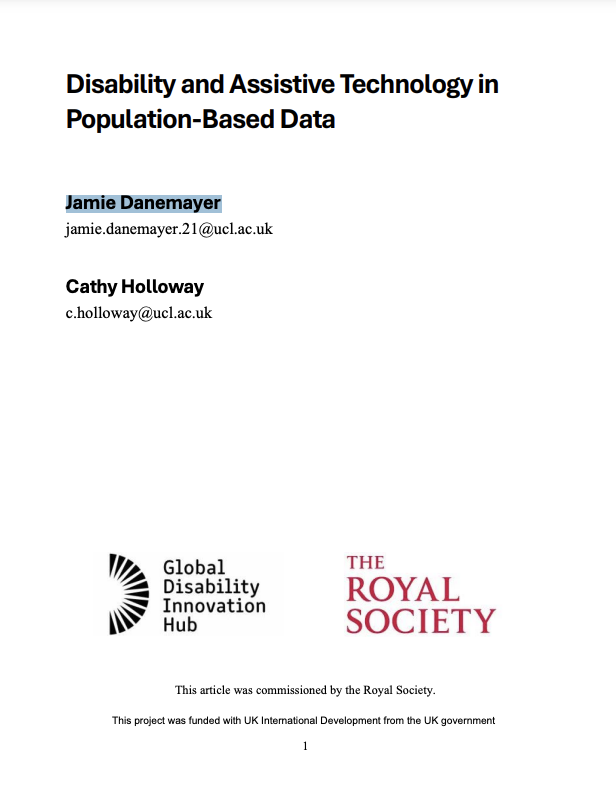
Disability and Assistive Technology in Population-Based Data
Jamie Danemayer, Catherine HollowayMarch 30, 2025Academic Research PublicationsThis article aims to describe the data types and accompanying methods that are commonly-used to estimate disability prevalence in a population. These estimates are often commissioned by policymakers to scale supportive measures, and innovators to describe addressable markets to funders.
-
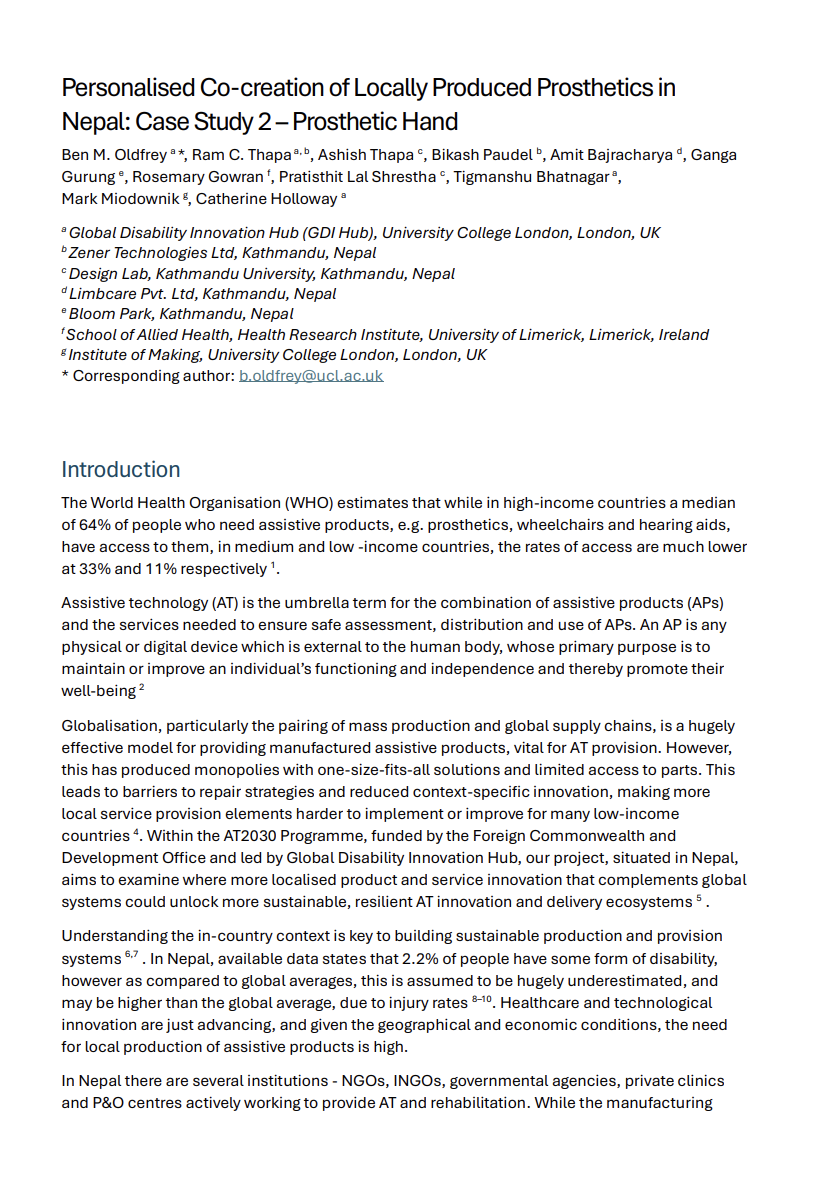
Personalised Co-creation of Locally Produced Prosthetics in Nepal: Case Study 2 – Prosthetic Hand
Dr Ben Oldfrey, RAM CHANDRA THAPA, Ashish Thapa, Bikash Paudel, Amit Bajracharya, Ganga Gurung, Rosemary Gowran, Pratisthit Lal Shrestha, Tigmanshu Bhatnagar, Mark Miodownik, Catherine HollowayMarch 28, 2025Case Studies and ReportsAs part of the AT2030 Local Systems Strengthening project, the Global Disability Innovation Hub supports the development of custom prosthetic hands in Kathmandu. Designed for the local context, these hands are being co-created by a global-local innovation team using digital fabrication and locally sourced materials.
-
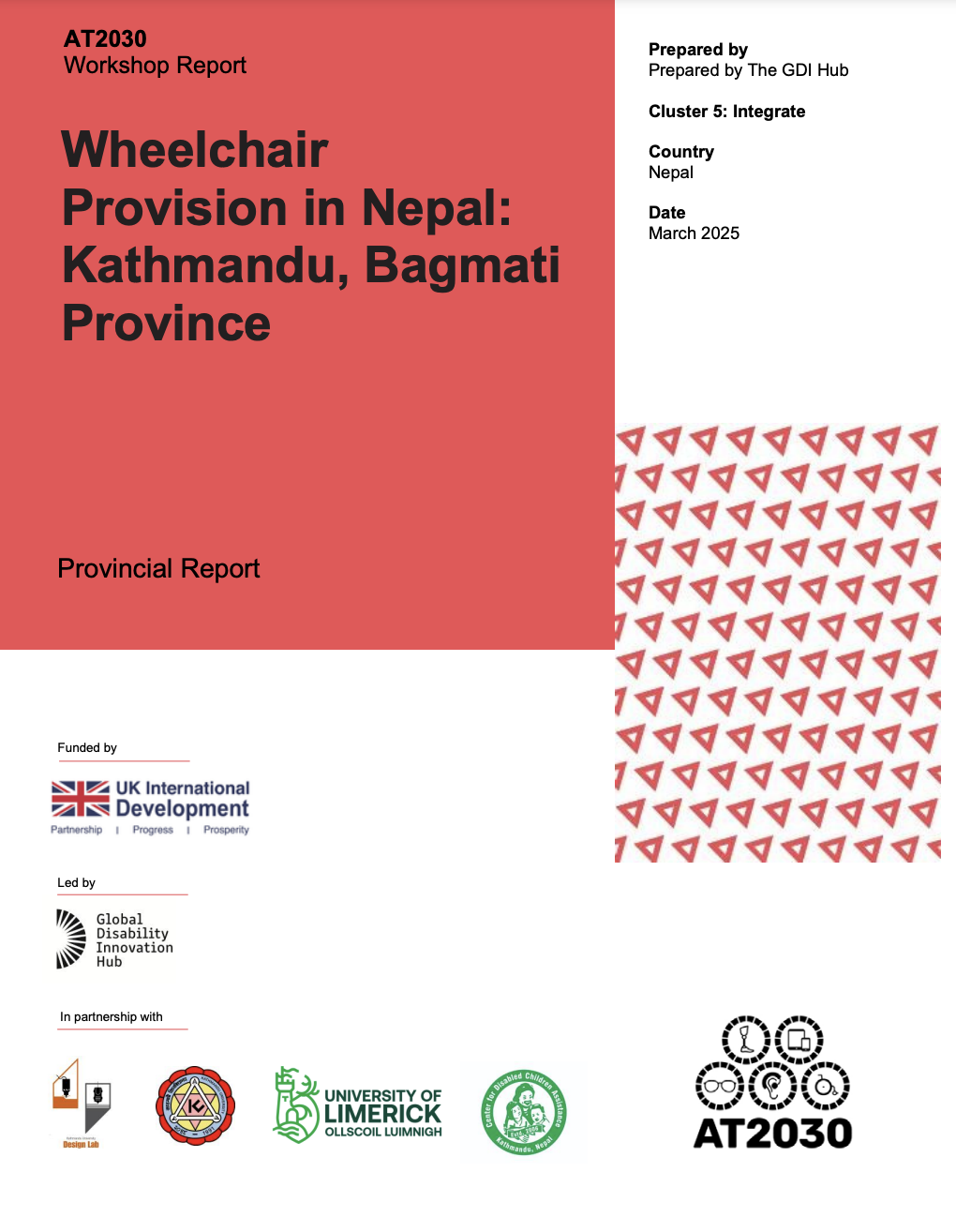
Wheelchair Provision in Nepal: Kathmandu, Bagmati Province
Global Disability Innovation Hub, University of Limerick, Kathmandu UniversityMarch 28, 2025NepalAcademic Research PublicationsApplying the Sustainable Community of Practice (SCOP) model to view wheelchair provision in Nepal, this study seeks to understand the landscape of overall wheelchair product and service provision, deep diving into its provincial situation. This report provides an insight on the provincial workshops conducted in the Kathmandu using the SCOP model and Soft Systems Methodology (SSM) which were pivotal in collaboratively identifying context-specific solutions and stakeholder-driven recommendations.
-
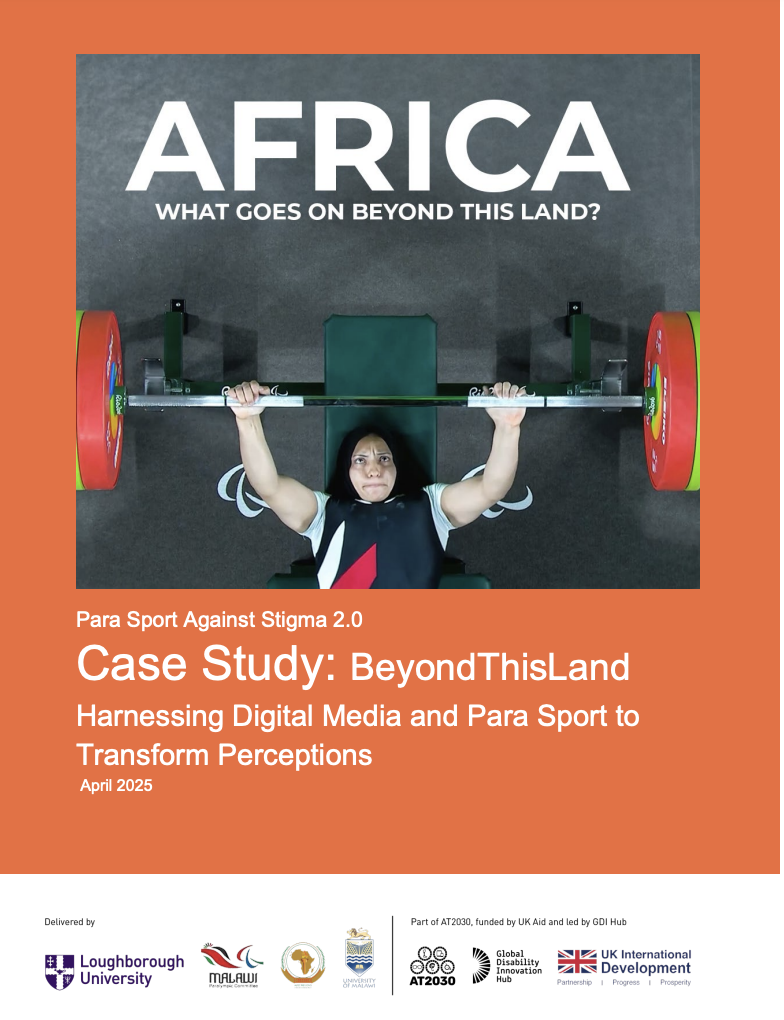
Beyond this land case study
Global Disability Innovation Hub, Loughborough University, University of Malawi, Malawi Paralympic CommitteeMarch 28, 2025Case Studies and ReportsStigma around disability in Africa remains deeply entrenched, limiting societal inclusion, reducing visibility, and restricting access to assistive technologies. This report highlights how showcasing talent, strength, and motivation, can challenge traditional narratives of disability. Africa’s growing digital landscape presents an opportunity to reshape perceptions and drive awareness of assistive technologies.
-
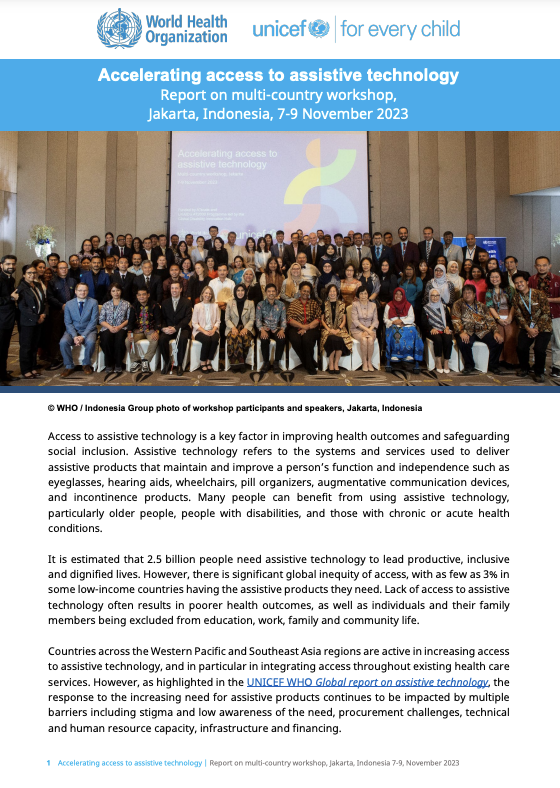
Accelerating access to assistive technology: report on multi-country workshop, Jakarta, Indonesia
Global Disability Innovation Hub, UNICEF, World Health OrganizationMarch 28, 2025Case Studies and ReportsThis report presents the outcomes of the multi-country workshop held on 7-9 November 2023, in Jakarta, Indonesia, to accelerate access to assistive technology in the Western Pacific and Southeast Asia regions. Organized by the World Health Organization (WHO) and UNICEF, the workshop gathered 106 participants from 15 countries in partnership with the Government of Indonesia.
-
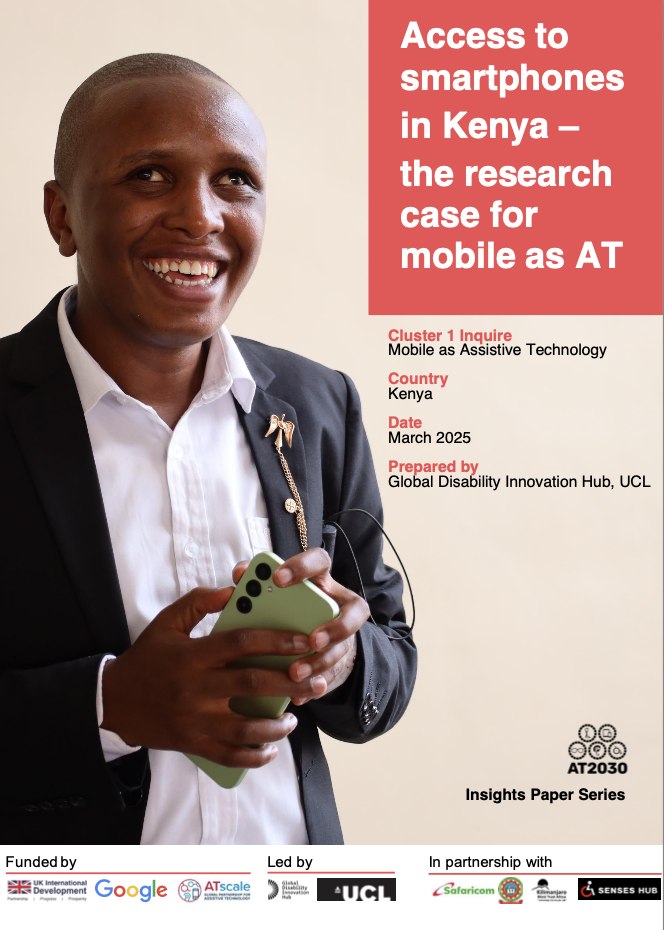
Access to smartphones in Kenya: the research case for mobile as AT
Global Disability Innovation HubMarch 28, 2025Academic Research PublicationsThis latest AT2030 Programme Insight Paper explores the impact of a groundbreaking intervention that equipped Deaf and Hard of Hearing (DHH) and Blind and Partially Sighted (BPS) participants with smartphones and tailored digital skills training.
-
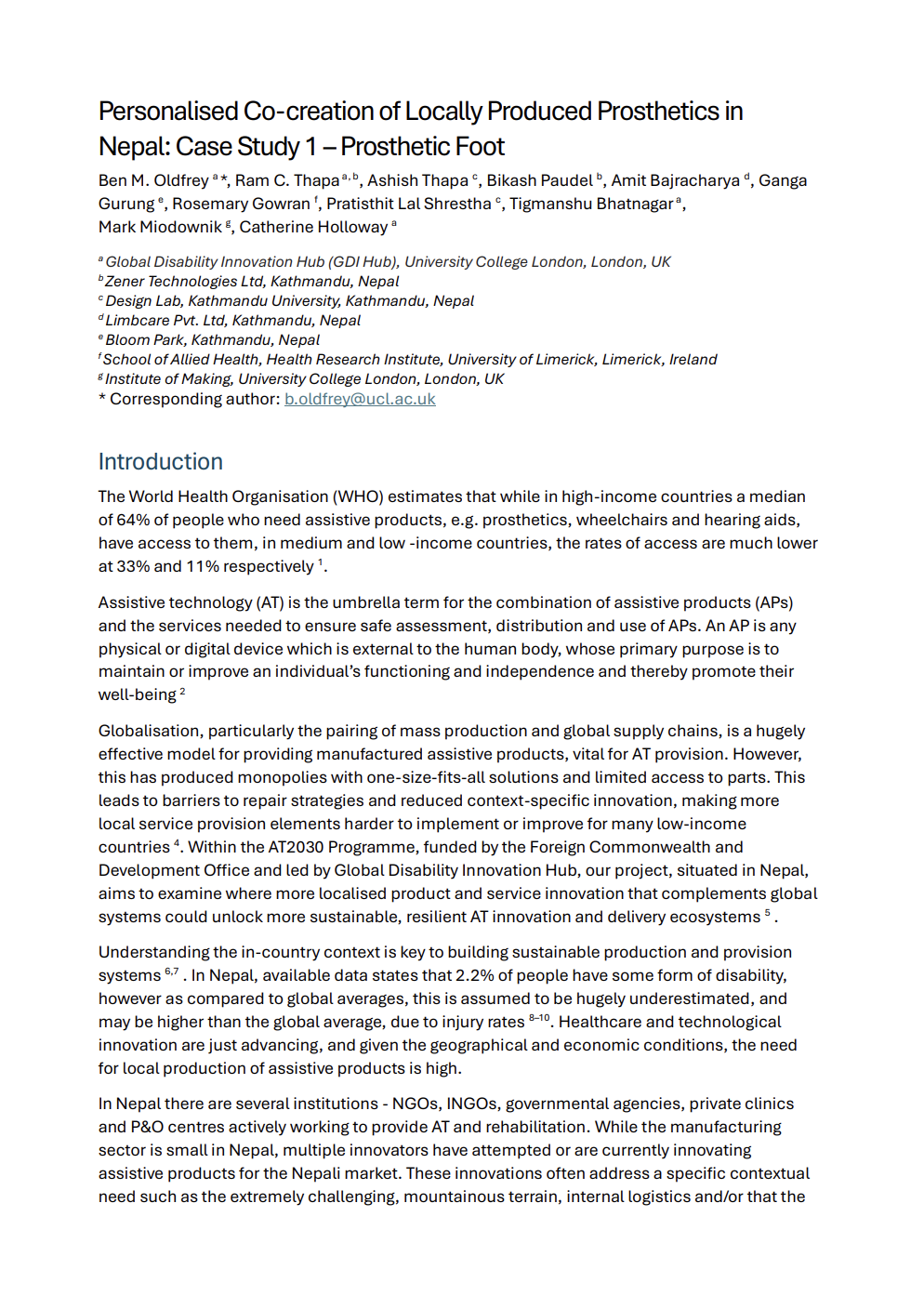
Personalised Co-creation of Locally Produced Prosthetics in Nepal: Case Study 1 – Prosthetic Foot
Dr Ben Oldfrey, RAM CHANDRA THAPA, Ashish Thapa, Bikash Paudel, Amit Bajracharya, Ganga Gurung, Rosemary Gowran, Pratisthit Lal Shrestha, Tigmanshu Bhatnagar, Mark Miodownik, Catherine HollowayMarch 28, 2025Case Studies and ReportsAccess to assistive technology (AT) like prosthetics and wheelchairs is limited in low-income countries—just 11% of those in need can access them. In Nepal, this challenge is worsened by difficult terrain, limited imports, and underreported disability rates.
Previous PageNext Page